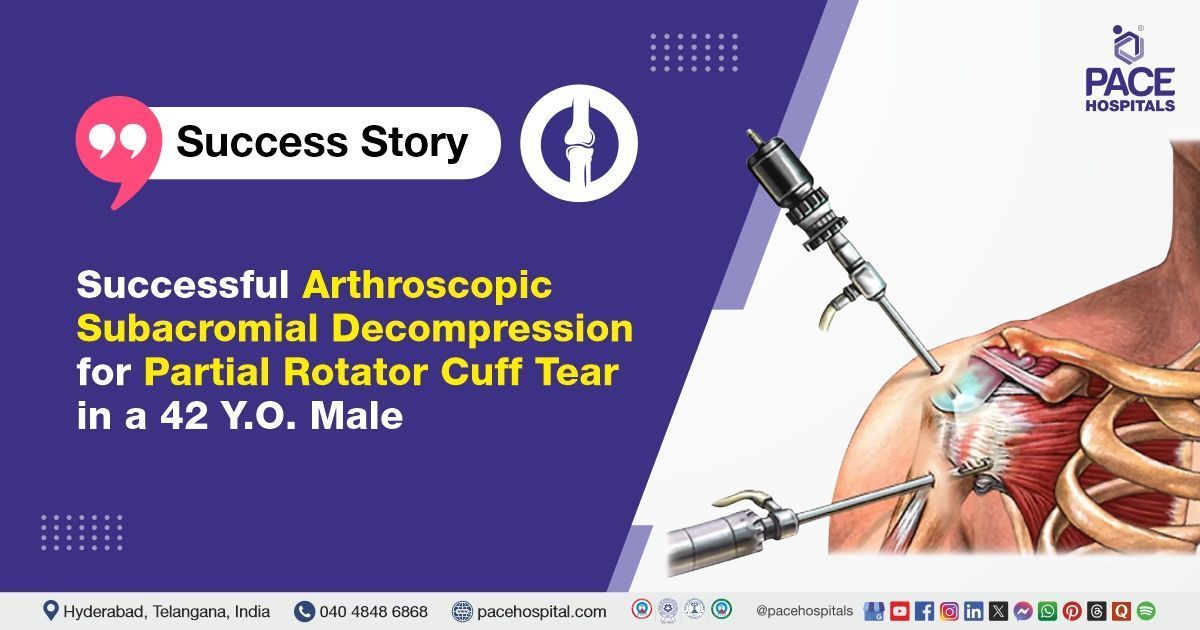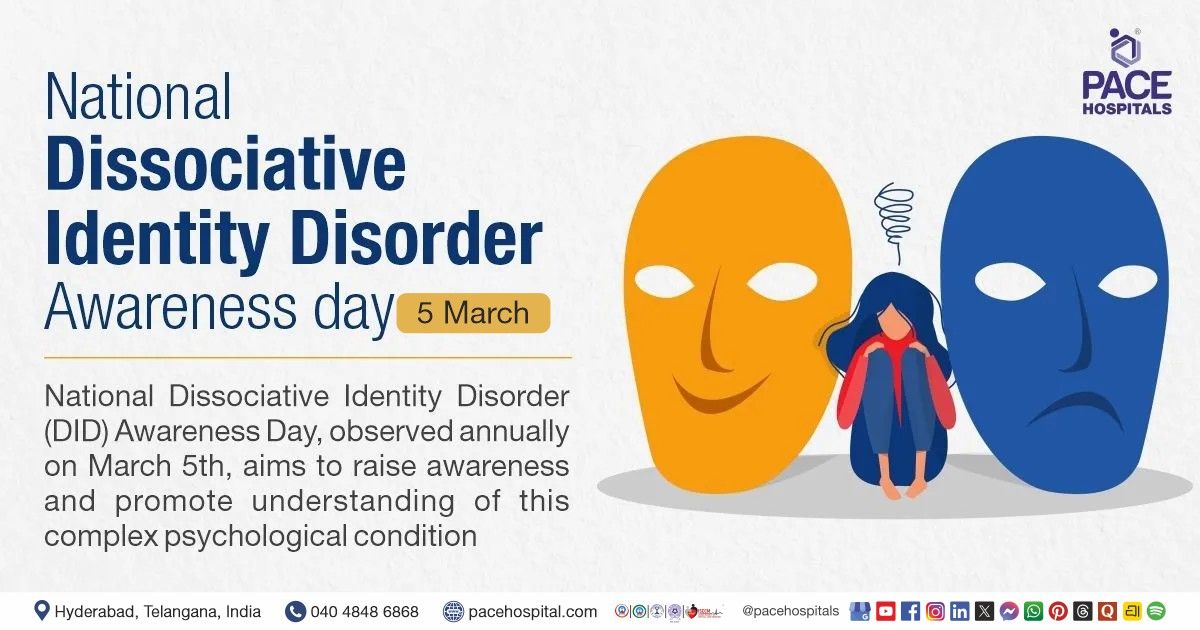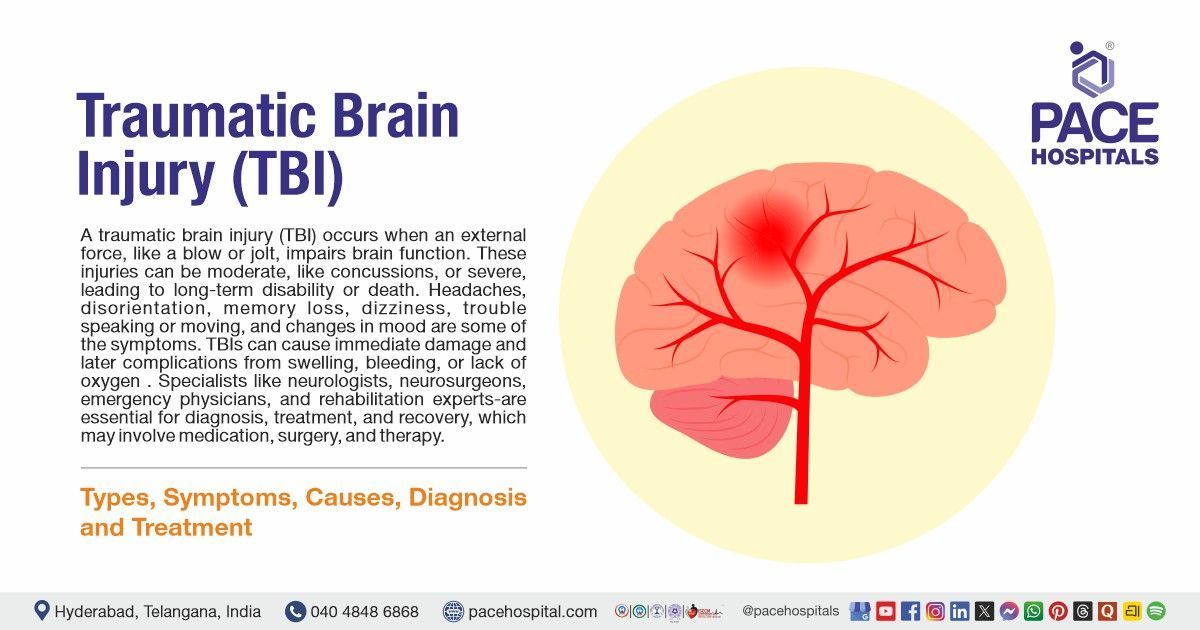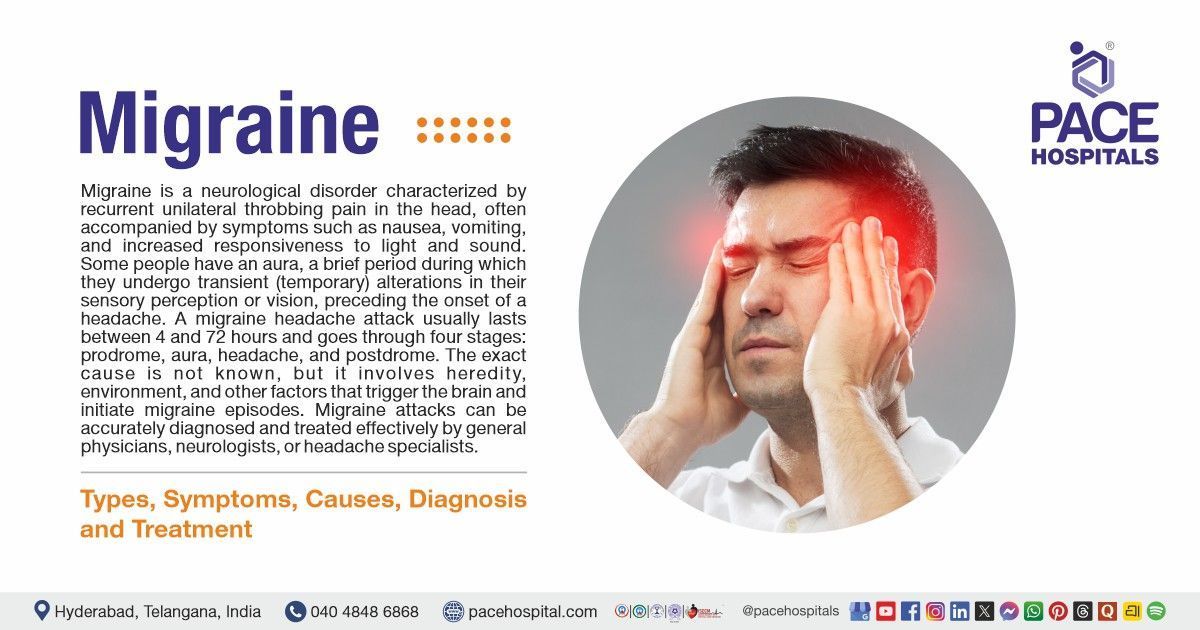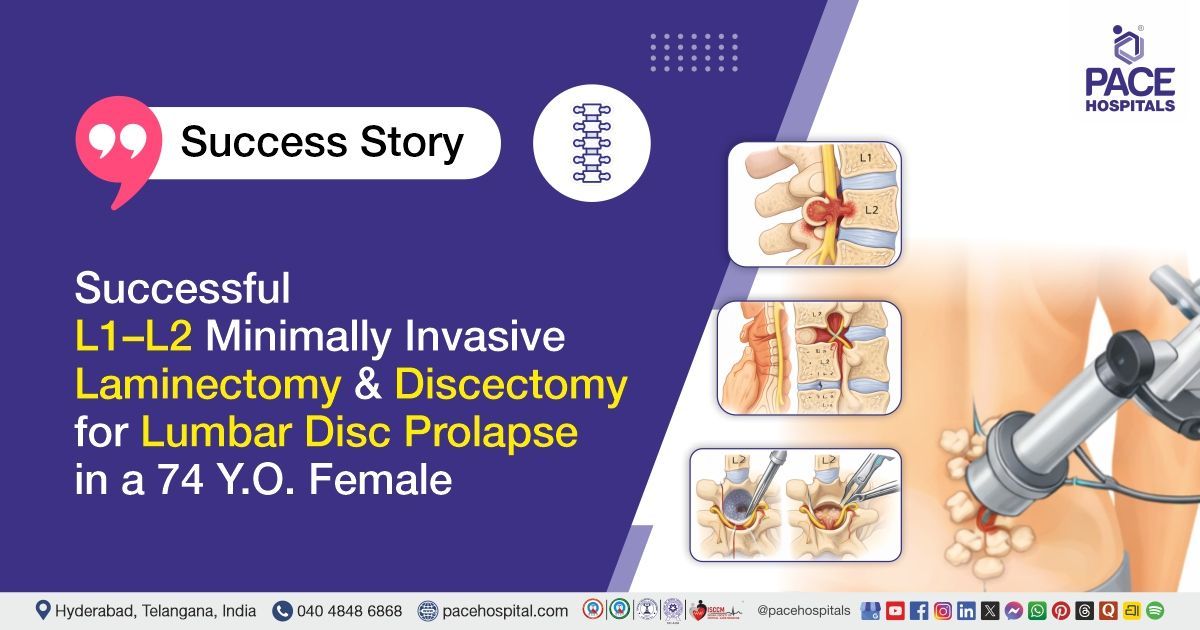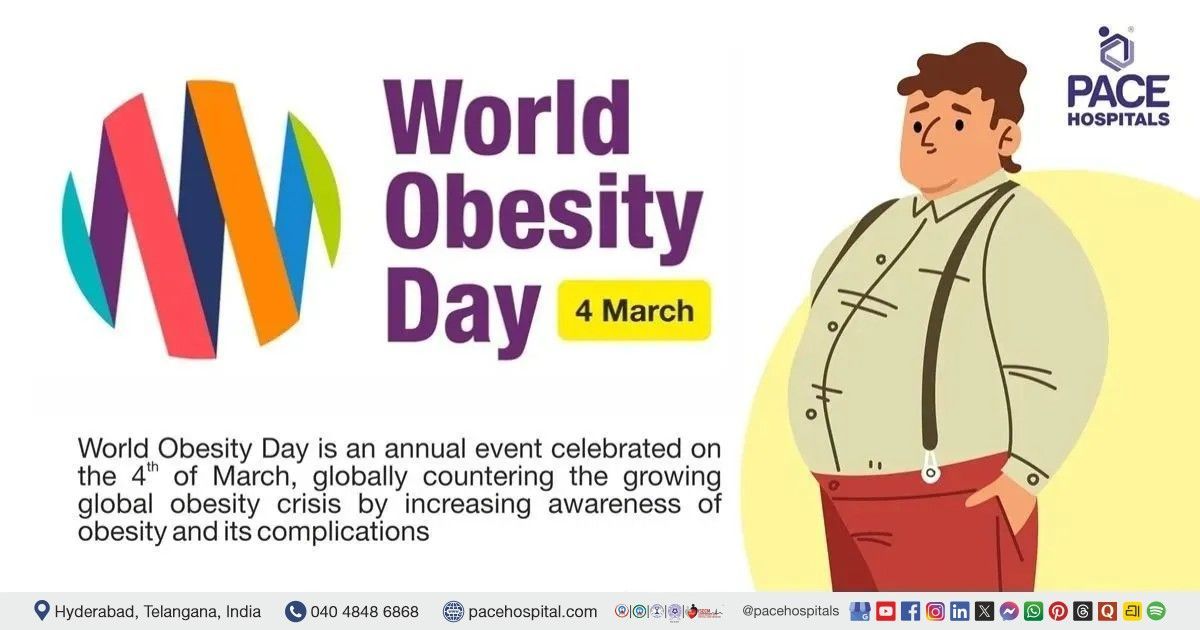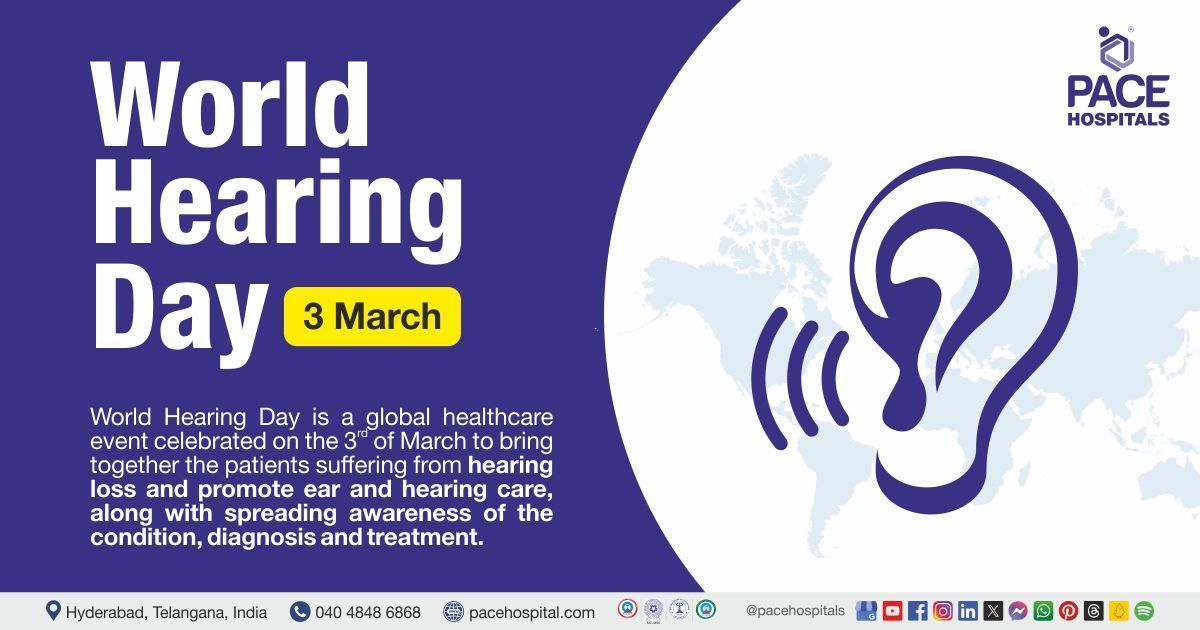Successful Arthroscopic Subacromial Decompression for Partial Rotator Cuff Tear in a 42 Y.O. Male
PACE Hospitals
PACE Hospitals’ expert orthopaedic team successfully performed an Arthroscopic Subacromial Decompression on a 42-year-old male patient diagnosed with a partial rotator cuff tear in the right shoulder. The patient complained of pain and difficulty in doing overhead activities for the past few months. The surgical procedure aimed to relieve subacromial impingement, reduce pain, and restore shoulder function.
Chief Complaints
A 42-year-old male patient with a
body mass index (BMI) of 20.4 presented to the Orthopaedic Department at
PACE Hospitals, Hitech City, Hyderabad, with complaints of pain in the right shoulder and difficulty in performing overhead activities for the past few months. The symptoms significantly affected his ability to carry out routine daily activities. The patient had previously undergone conservative management, but there was no significant relief from pain.
Past Medical History
The patient had no known history of hypertension or diabetes. The absence of these comorbid conditions was considered clinically favourable, as it had minimised the risk of intraoperative and postoperative complications and had supported a smoother, more stable recovery in this case.
On Examination
On examination, the patient was conscious, coherent, and well-oriented. Vital signs were stable, with normal heart rate, blood pressure, respiratory rate, and temperature.
Local examination of the right shoulder revealed restricted internal rotation and abduction beyond 30 degrees due to pain. The Jobe test was negative. No distal neurovascular deficit (DNVD) was observed. There was no pallor, icterus, lymphadenopathy, clubbing, or cyanosis.
Diagnosis
Following clinical examination, the orthopaedic team conducted a comprehensive assessment, including a detailed review of the patient’s history and prior conservative treatment for right shoulder pain.
To confirm the diagnosis and evaluate the injury, an MRI of the right shoulder was performed, revealing a partial tear of the rotator cuff tendon with subacromial bursitis.
Based on these findings, the patient was advised to undergo
Partial Rotator Cuff Tear Treatment in Hyderabad, India, under the care of the Orthopaedic Department, ensuring comprehensive management.
Medical Decision Making
After a detailed consultation with Dr. Raghuram, Consultant Orthopaedic Surgeon, a timely multidisciplinary discussion was held to determine the most appropriate diagnostic and therapeutic approach. Considering the history and review of the patient’s clinical presentation and imaging studies, a comprehensive assessment was carried out to determine the optimal treatment plan. The patient’s partial rotator cuff tear with associated subacromial bursitis was thoroughly evaluated to ensure the best surgical approach and postoperative recovery.
Based on the detailed clinical examination and MRI findings, it was determined that the patient had a partial tear of the rotator cuff in the right shoulder, associated with subacromial bursitis. Arthroscopic subacromial decompression was identified as the most suitable surgical intervention to relieve impingement, reduce pain, and restore shoulder function.
The patient and his family were counselled regarding the diagnosis, the planned surgical procedure, its associated risks, and its potential to alleviate symptoms and improve his quality of life.
Surgical Procedure
Following the decision, the patient was scheduled to undergo Right Shoulder Arthroscopic Subacromial Decompression Surgery in Hyderabad at PACE Hospitals under the expert care of the Orthopaedic Department.
The procedure was performed in the following steps:
- Preoperative Preparation: The patient was placed in the beach chair position under general anaesthesia to ensure optimal access to the shoulder joint. The right shoulder was cleaned with an antiseptic solution and draped in a sterile manner to maintain a clean operative field.
- Diagnostic Arthroscopy: Standard arthroscopic portals were created. A diagnostic arthroscopy was carried out, which confirmed a partial tear of the rotator cuff tendon and subacromial bursitis.
- Subacromial Decompression: The subacromial space was cleared using a shaver, and subacromial decompression was performed to relieve impingement and create space for tendon movement.
- Wound Closure and Dressing: After ensuring hemostasis, the portals were closed in layers using absorbable sutures. A sterile dressing was applied over the surgical site.
Postoperative Care
The postoperative period was uneventful. The patient was initially monitored in the recovery room and later shifted to the ward in a stable condition. On the first postoperative day, the surgical dressing was changed, and the wound was found to be clean and dry. During the hospital stay, the patient was managed with intravenous antibiotics, analgesics, and supportive care. The physiotherapy team initiated basic shoulder mobility exercises and guided the patient on safe movement and rehabilitation techniques. The patient showed steady clinical improvement throughout his stay and was discharged in stable condition with follow-up instructions.
Discharge Medications
Upon discharge, the patient was prescribed a combination of oral antibiotics and analgesics to prevent infection and ensure effective pain control. Anti-inflammatory medication was included to reduce postoperative swelling and inflammation, while gastric protection was provided to minimize gastrointestinal side effects antiplatelet regimen to prevent clot formation. Vitamin C and iron supplements were also advised to support healing and recovery.
Advice on Discharge
The patient was advised to begin physiotherapy as part of the postoperative rehabilitation plan. Walking training and stair climbing exercises were recommended for 1 week to promote mobility and prevent deconditioning. The patient was also instructed to follow guided physiotherapy sessions to gradually restore shoulder movement and strength while avoiding strenuous activities until further review.
Dietary Advice
A normal diet was advised, with emphasis on balanced nutrition to support healing and recovery. The patient was encouraged to consume protein-rich foods, fresh fruits, and vegetables, and to maintain adequate hydration.
Emergency Care
The patient and his family were informed to contact the emergency ward at PACE Hospitals in case of any emergency or development of symptoms such as bleeding, shortness of breath, severe pain, or fever.
Review and Follow-up Notes
The patient was advised to return for a follow-up visit with the Orthopaedic Doctor in Hyderabad at PACE Hospitals after one week for wound dressing change and clinical evaluation.
Conclusion
This case demonstrates the successful management of a partial rotator cuff tear with associated subacromial bursitis through arthroscopic subacromial decompression. The patient had an uneventful postoperative recovery and was discharged in stable condition. Appropriate postoperative care,
physiotherapy, and follow-up have been advised to ensure optimal functional restoration and pain relief.
Significant Impact of MRI in Guiding Orthopaedic Treatment for Shoulder Pain
Magnetic Resonance Imaging (MRI) is a key diagnostic tool used by an orthopaedic doctor / orthopaedic surgeon to identify partial rotator cuff tears and subacromial bursitis. It provides a detailed visualisation of soft tissues, enabling accurate differentiation between various causes of shoulder pain. This imaging modality helps evaluate the severity and precise location of tendon injuries, which is critical for formulating an effective treatment plan. When conservative therapies fail to alleviate symptoms, MRI findings guide the orthopaedic surgeon in deciding whether surgical intervention, such as arthroscopic subacromial decompression, is necessary. This targeted approach ensures optimal patient outcomes through evidence-based decision-making. Overall, MRI supports the orthopaedic specialist in delivering precise, individualised care for shoulder disorders.
Share on
Request an appointment
Fill in the appointment form or call us instantly to book a confirmed appointment with our super specialist at 04048486868

